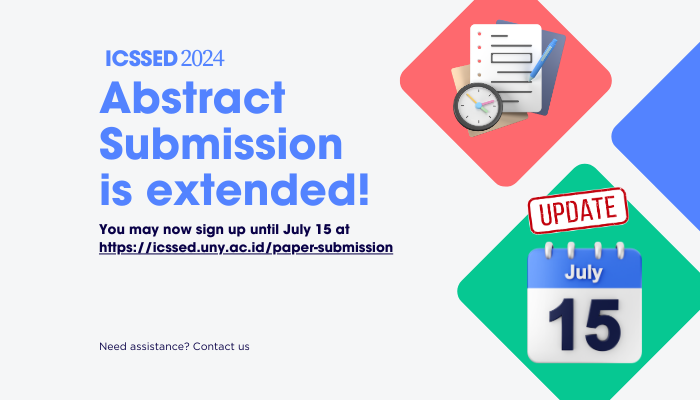
This conference aims to explore the social, political, and educational conditions in Indonesia today through the lens of decoloniality thinking within orientalism and occidentalism temporality. Borrowing Heidegger's concept of existence and time, temporality refers to a unity of time that shapes existence. Temporality indicates that the past’s history, the present’s reality, and the future’s uncertainty are interconnected influencing self-awareness and subjectivity. Through examining temporality within Orientalism and Occidentalism, this conference seeks to understand how these concepts intersect and evolve over-time, including in the digitalized technological advancement and the fourth industrial revolution.
Furthermore, this conference will also discuss decolonial perspectives as a tool to build an enabling ground for socio-political and educational changes. The decolonial perspective deeply questions and challenges the legacies of colonialism and imperialism, particularly in knowledge production, social and political structure, and cultural paradigm. Our goal is to spark knowledge production reforms in Indonesia and beyond so that new awareness is promoted, oppression and alienation (the otherness) are intercepted, and values of justice, equality, and sustainable social transformation are further promoted.
This conference maps and builds a main argument that the complexity of social, political, and educational issues in Indonesia today requires a fresh and productive approach toward changes: decolonial thinking. Different from the preceding understanding of colonial practices that ended with the end of colonialism, decoloniality theories examine and demonstrate that colonialism, which ended with the resistance of colonized nations, did not necessarily stop coloniality practices in new nations. This continuity relies on modern paradigms having a double-edged axe that generates global hierarchical views and perpetuates coloniality. Coloniality creates various implications for the global order, referring to the colonial power matrix. The colonial power matrix continues in at least four domains of work according to Quijano: first, land appropriation and labor exploitation; second, control over authority; third, control over gender and sexuality; and fourth, control over subjectivity and knowledge. The three interrelated components of these colonial power matrices—knowledge, racism, and capital—then reinforce one another and serve as the primary means of their reproduction (Mignolo, 2013; Restrepo, 2018). Further, a combination of these three categories institutionalized global superiority-inferiority and legitimized Western superiority over the East and South. Thus, to understand, question, and build future historical alternatives grounded in substantial equality between the East and the West, the South and the North, non-binary, non-linear efforts are needed.
Conference Speaker - ICSSED 2024 oleh humas_fis
May 31, 2024 July 15, 2024
June 14, 2024 July 22, 2024
June 1-30, 2024
Early Bird RegistrationJuly 31, 2024
Full Paper SubmissionAugust 15-16, 2024
Conference Date